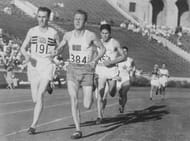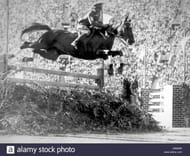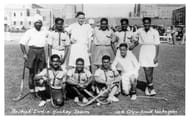Between the Olympics that happened in Amsterdam and Los Angeles, a lot had happened. The world had changed for the worse. A booming, soaring world economy crashed down. Millions of jobs vanished in thin air. As such, people wondered if it was even worthy to host the Olympics in Los Angeles.
Some noteworthy points of the Los Angeles Olympics
However, the Olympics were conducted, and they were a significant success. For the first time, the Olympics were a profitable venture for the host country. The concept of an Olympic village had already been introduced in Paris in 1924.
Also read: Know Your Olympics - Paris Olympics 1924
But a standardized concept was laid down in Los Angeles for the first time, with separate quarters for men and women.
The Los Angeles edition is well known for bringing curtains to the career of Paavo Nurmi. The Finnish legend aimed to end his career with a gold medal in the marathon. However, conflicts between Sweden and Finland claimed his amateur status, and he was banned from participating in these Olympics.
The 1932 Games also saw the rise of Takeichi Nishi, a Japanese hero. An equestrian show jumper, he dazzled the world with his horse riding skills, and won an Olympic gold medal for Japan.
However, he is as famous on the field as he was off the field. During the Battle of Iwo Jima, he fought bravely, and was martyred in action. He even helped some of the wounded rival soldiers in action before being killed.
If Amsterdam was the beginning, Los Angeles would maintain the authority of Indian hockey. 'Like a typhoon from the East', India bulldozed any challenge that came its way.
Though there were only two teams to oppose them, including the host United States, India clinched the gold medal in style. While defeating USA, they scored a record score of 24-1, a world record that stood for years, until Australia broke it against Papua New Guinea.
The Olympics that were held after the Great Depression -

The 1932 Olympics were held in Los Angeles. After 28 years, the Olympics had returned to America. The city of Los Angeles hosted the Olympics in 1932. However, a lot had changed by then.
In 1929, a booming world economy crashed overnight. The Great Wall Street Crash led to a massive depression worldwide, economically. As the Olympics were held in 1932, most countries were just recovering from the after effects of the huge economic disaster.
Consequently, some nations did not travel to Los Angeles. Instead of the previous 46 nations that competed at Amsterdam in 1928, just 37 nations competed at the Los Angeles Games. Even Herbert Clark Hoover, the American President, himself chose to give the quadrennial event a miss.
Despite facing numerous challenges, the Los Angeles Olympics initiated several firsts. For the first time, an official Olympic village was built, with separate quarters for men and women. A Scottish terrier, Smoky, was used as the first ever Olympic mascot. This was a first in Olympic history.
The legend of Takeichi Nishi, a hero both off and on the field -

If India had Colonel Haripal Kaushik, Japan would have Colonel Takeichi Nishi. He was a hero, both off the field as well as on the field. Before he attained martyrdom in the Battle of Iwo Jima, Takeichi Nishi was famous as a smart horse rider, who won Japan's first gold medal in horse riding at the Olympics.
Also known as Baron Nishi, Takeichi Nishi made great efforts to come to the Olympics. He had bought the horse Uranus, with his own funds. He surprised everybody when he won a gold medal in the show jumping individual event.
Till date, it remains Japan's only gold medal in the equestrian event to this day. Nishi also participated at the Berlin Olympics in 1936. Sadly, he fell off mid course, and failed to win a medal.
However, Takeichi Nishi immortalized his legacy as a soldier at the Battle of Iwo Jima. Nishi was one of the rare soldiers who was respected by his own as well as the rivals. Even today, his name is taken with utmost respect and honor, and his character has been immortalized in Clint Eastwood's film 'Letters from Iwo Jima'.
The end of the Flying Finn's career -
![Paavo Nurmi [right] - A sad end to an otherwise glorious career](https://staticg.sportskeeda.com/editor/2021/07/5c256-16257407772383-800.jpg?w=190)
The legendary Finnish runner, Paavo Nurmi, wanted to end his career on a high. He wanted to emulate his idol, long distance Finnish champion Hannes Kolehmainen, who ended his career with a gold medal in marathon. However, he was denied this opportunity at the Los Angeles Games.
Paavo made his Olympic debut in the 1920 edition of Antwerp. After winning a silver medal in the 5000 m, he took gold in the 10,000 m and the cross country events, be it individual or team. However, he didn't stop at that and created a sensation at the Paris Olympics in 1924.
He set new world records for the 1500 m and the 5000 m with just an hour between the races, and took gold medals in both distances in less than two hours at the 1924 Olympics. Nurmi won all his races and returned home with five gold medals. However, he continued to hold a grudge that Finnish authorities denied him a sixth gold medal in the 10000 meters.
At the Los Angeles Games, Paavo Nurmi aimed to end his career with a gold medal in the marathon. Sadly, his dream never came true.
In a controversial case that strained Finland–Sweden relations and sparked an inter-IAAF battle, Nurmi was suspended before the 1932 Games by an IAAF council. The council questioned his amateur status, and just two days before the opening ceremonies, the council rejected his entry.
Japan's swimming shock -
![Kusuo Kitamura [right] - The man who led the Japanese surprise at Los Angeles Games](https://staticg.sportskeeda.com/editor/2021/07/41c4e-16257424538427-800.jpg?w=190)
The Los Angeles Games were mostly a predictable, boring affair. Not many were surprised by the results. However, the results of one discipline shocked everybody. It was swimming.
If the rise of Indian hockey surprised many in Amsterdam, what people saw in Los Angeles was nothing less than a wonder. In the men's swimming events, the swimmers from Japan created a sensation, sweeping almost all the gold medals on offer.
Yes, in men's swimming, almost all the gold medals had been taken up by Japan. In fact, in the men's 100m backstroke, an event traditionally dominated by Americans, the podium was swept by Japan.
The only man who avoided a complete sweep of gold medals by Japan was Buster Crabbe from USA. He won a gold medal in the men's 400 meters freestyle event.
However, the Los Angeles Games also saw a world record. Kusuo Kitamura of Japan won the gold medal in the men's 1500 meters freestyle event. So, what is special about it?
Kusuo was only 14 years old, 309 years old when he won that gold medal. Until the Seoul Olympics of 1988, he was the youngest individual ever to win an Olympic gold medal in any swimming event. Even today, Kusuo is the youngest male swimmer ever to win an Olympic gold medal.
Team India wins tri-series in style -

If the Los Angeles Games saw the rise of Japanese swimming, it also saw the supremacy of Indian hockey as well. Having won a gold medal on debut in Amsterdam, Team India were all set to win another gold medal in Los Angeles.
This time though, the equations were slightly different. Most of the teams had withdrawn from their squads, either due to the Great Depression, or due to other reasons. For Great Britain, the lesser said the better.
As a result, the Los Angeles were the first and the last Olympics, where none of the hockey teams returned empty handed.
Only three teams participated at the Olympics - India, Japan and the hosts, USA. Though Japan was not as bright as India, they still proved to be a competent team. Though they were thrashed by India by 11-1, they defeated USA by 9-2 to secure at least a silver medal for themselves.
However, the thrashing for the hosts was not enough. They were further thrashed 24-1 by India. Major Dhyan Chand scored 8 out of those 24 goals. Meanwhile, his younger brother, Roop Singh, scored 10 out of 24 goals. The rest were shared between Broome Pinniger and Gurmit Singh Kullar.
Fun fact: the lone goal by USA happened only because India's goalkeeper, Richard Allen, was busy signing autographs behind the goalpost! We are seriously not making this up!
